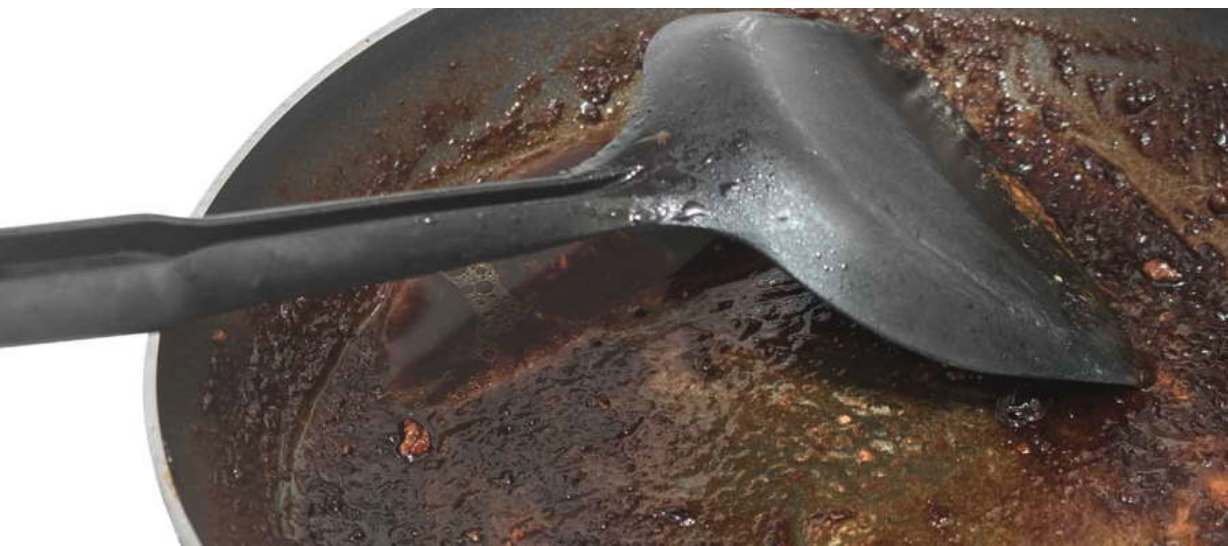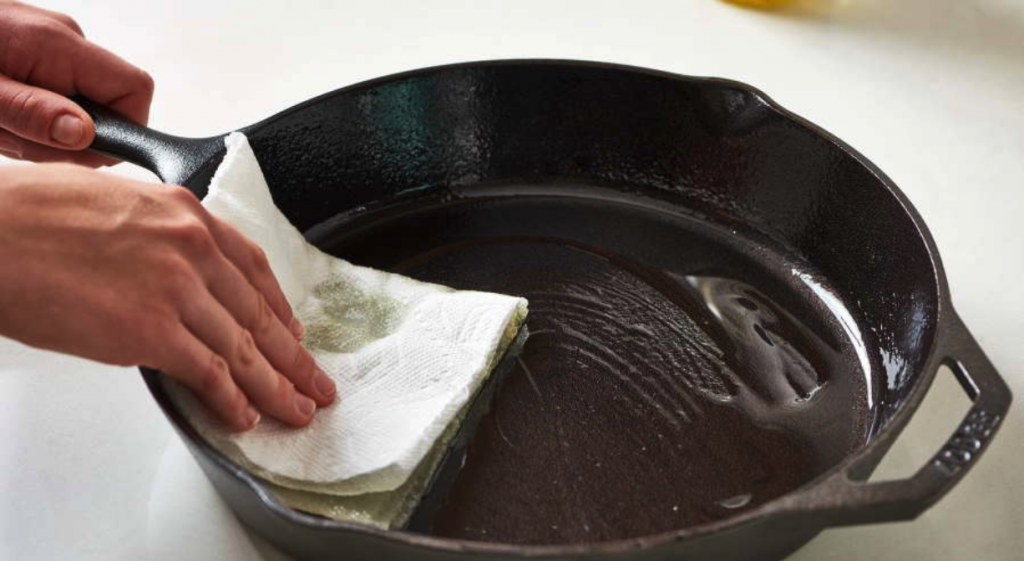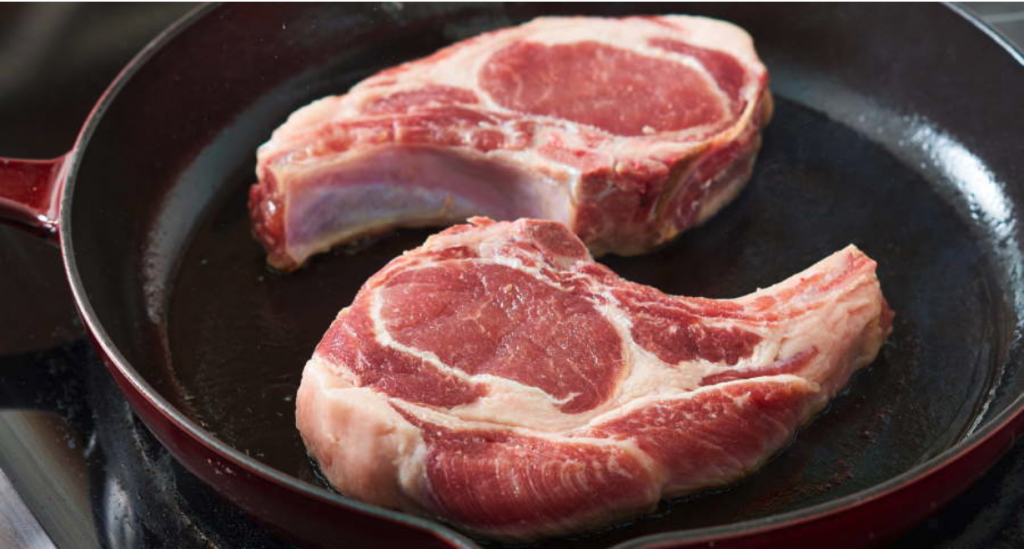
How to Avoid Food Sticking To Your Precious Cookware
Every home has non-stick cookware. Such pans prevent food particles from sticking to the surface of the pans and this way, cleaning them afterward is easy. You can cook your eggs, fish and other delicate proteins on your pots and pans and they will not stick to the surface to leave a gross mess.
The problem with such cookware is that you cannot use them over high heat. The non-stick surface gets damaged when it is exposed to high heat and this limits the use of such pans in your kitchen. You cannot brown your meats properly with these pans since you need high heat to achieve this.
You will need stainless steel cookware to give your meals crisp brown edges but the thing with these pans is that your meals can stick to the surface when they are not used properly. To help you in this regard, I’ve have created this article that will help you prevent food particles from sticking to your precious cookware.
Why food particles to stick to the surface of your cookware?
Food sticks to the surface of cookware when the food particles react with the surface of the cookware in a chemical bond. Protein-rich foods like eggs and fish are highly prone to sticking to the surface of cookware because the protein atoms in the food react with metal elements like iron in the cookware to form complex compounds. The chemical bonding process is facilitated by the heat supplied by the stove that one uses when cooking.
Furthermore, if your pans are unclean, it can exacerbate the issue of food sticking to the cookware’s surface. Residual food particles and grease left on the pan can create additional opportunities for chemical bonds to form, making it even more challenging to prevent food from sticking.
Additionally, improper cookware storage, such as stacking pans without adequate protection or leaving them exposed to moisture, can lead to the development of rust or other surface imperfections that further promote food adhesion. To prevent food from sticking and maintain the longevity of your cookware, it’s essential to clean and store it properly after each use. If your kitchen lacks space for proper storage, consider exploring custom cabinet options designed to enhance the functionality of your kitchen
How to prevent food particles from sticking to the cookware
To prevent this chemical bond from forming, you need to provide some lubrication that will act as a barrier between the food particles and the surface of the cookware. The lubrication could be oil or butter that will prevent the meal that you are preparing from coming into contact with the heated metal surface and forming a chemical bond.
The chances of these chemical bonds forming are also greatly reduced when you get quality cookware for your kitchen. Top quality cookware are seasoned effectively and this way, they possess the needed lubrication that ensures that a barrier exists between the food and the cookware surface so as to prevent food sticking.
You may think that the right cookware is expensive but that is not the case. Top quality pots and pans are super affordable and once you get yourself a set, you are sorted for life. Other than buying the right cookware, here are other things you can do to prevent food particles from sticking to your precious cookware when cooking.
1. Season the cookware regularly
Metallic pans like stainless steel don’t have a non-stick coating attached to them. Low-fat proteins like lean fish and meat can, therefore, stick to the surface when they are cooked on such pans but with proper seasoning, you will be able to prevent this from happening.
Cookware seasoning involves treating your pans with oil so as to create add a protective layer to the cookware that will prevent food particles from sticking to the surface.
To do this, rub some vegetable oil to the surface of your cookware and heat them over a burner for 2 minutes. Place the seasoned pan in an oven at 300 F for effective treatment. Let the cookware to cool before wiping off any excess oils on the surface.

2. Use a clean pan
To prevent food particles from sticking to your cookware, you need to make sure that your pots and pans are clean when you use them. This is because the old food particles on a dirty pan serve as contact surfaces for food particles to stick on. If you don’t want this, clean your pans properly after every use with a good quality cookware cleaner, such as the ones available on https://www.thecleaningcollective.co.uk/ (Visit this page here). With a clean pan, you will have an even cooking surface to work on and this will ensure that the food that you are preparing doesn’t stick to the surface.
3. Improve your storage
The measures you take to store your cookware can make a huge difference in their cleanliness and longevity. Oftentimes, cookware that is stacked one upon another or left outside tends to get damaged easily due to insufficient protection and exposure to environmental elements. Proper storage, on the other hand, can not only safeguard your cookware from scratches, dents, and rust but can also preserve its performance over time. Therefore, if your kitchen doesn’t have sufficient storage capacity, you may want to consider working with a Kitchen remodeler in Palo Alto, CA or similar experts in your area to improve your storage.
4. Dry your food
When cooking your meals especially meat, you should make sure that they are dry before you drop them into the pan. This is because when you place wet meat on a pan, the heat will evaporate the moisture on the surface rather than cooking and browning the meat.

When the moisture evaporates, the dry meat will come into contact with the heated surface and this will result in food sticking to the surface.
Instead, you should cook your meat when it is dry so as to hasten the breakdown of the proteins so as to prevent it from forming a chemical bond with the metal surface. Doing this will brown and sear the meat which goes a long way to make the meat more flavorful.
5. Heat the oil before cooking
Oil provides the lubrication that will prevent food from sticking to the surface but you need to make sure that the oil is hot before you start cooking. To do this, heat the pan first and then add the oil or butter. The heated pan will make sure that the oil gets to every part of the cookware and this will prevent food particles from sticking to the surface of the pan. The heated pan will also spread the oil out to make it thin and this way, you will use very little oil when cooking your meals which is very healthy.
Final Word
Non-stick cookware are great for your kitchen but they are limited in application. You cannot use them to brown your meat and onions and this is where metallic cookware like stainless steel pots and pans come in. The problem with such cookware is that they are prone to food sticking to the surface but with the tips highlighted above, you will be able to cook your favorite meals without food particles sticking to the surface.
- Restaurant Germs: Improving Cleaning Practices For Commonly Contaminated Surfaces - April 15, 2024
- Fabulous Baby Shower Ideas to Try Soon - May 16, 2023
- Raw Manuka Honey Auckland New Zealand - March 10, 2023


